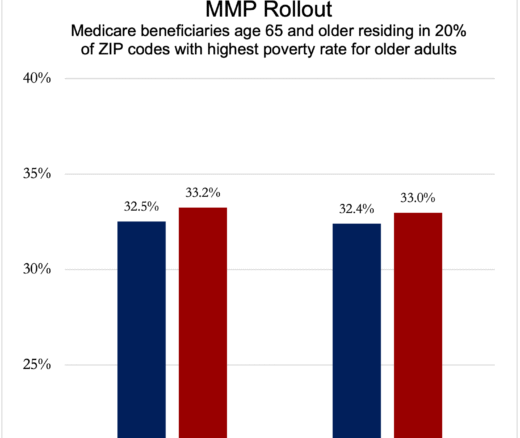
Acupuncture Could Fix America’s Chronic Pain Crisis–So Why Can’t Patients Get It?
A Proven, Low-Risk Treatment Is Backed by Major Studies and Patient Demand, Yet Medicare and Insurers Still Make It Hard To Use
Blog Post

Going home from the hospital can be a scary time. Many patients and caregivers report feeling unprepared, especially since historically hospital stays have gotten shorter. That lack of preparedness for caregivers is compounded by feeling left out of the discharge planning process. The stakes are especially high for the 20% of elderly patients who get readmitted to the hospital within 30 days.
The Caregiver Advise, Record, Enable (CARE) Act is a state-level policy designed to improve patients’ hospital experience by streamlining the discharge process. One of its main goals is to require hospitals to include caregivers in discharge planning and train caregivers to provide medical and nursing tasks that support a patient’s discharge plan. Since 2014, 44 states have passed the CARE Act.
To evaluate whether the Act’s requirements improved the patient experience, LDI Fellows Courtney R. Lee, Norma B. Coe, and Paula Chatterjee used data from the Hospital Consumer Assessment of Healthcare Providers and Systems (HCAHPS) survey, which measures patient experiences with discharges and other facets of hospital care.
Their findings suggest that collaborating with caregivers during discharge planning is associated with better patient experience and outcomes. In addition, they found that hospitals in CARE Act states showed significant differential improvements over time in the quality of communication between patients and both nurses and physicians compared with hospitals in non-CARE Act states. From 2012-2016, patient experience was roughly the same in CARE Act and non-CARE Act states. However, following the growing adoption of the Act in 2016, patient ratings of nursing and physician communication in states that had passed the Act began to improve more than ratings in non-CARE Act states, as our figure shows.
The passage of the CARE Act provided an opportunity to improve typical patient discharge planning, and allowed systems to rethink the experience of leaving the hospital.
Lee, Coe, and Chatterjee write that the success of the CARE Act in hospitals can be used to guide policy changes that standardize the integration of caregivers in other areas of health care delivery, including emergency department visits and end-of-life care. They also hypothesize that integrating caregivers into the health care system, as the CARE Act seeks to do, might work to address social determinants of health and negative health outcomes associated with caregiving.
The study, “Patient Experience at U.S. Hospitals Following the Caregiver Advise, Record, Enable (CARE) Act,” was published on May 1, 2023 in JAMA Network Open. Authors include Courtney R. Lee, Elizabeth Taggert, Norma B. Coe, and Paula Chatterjee.



A Proven, Low-Risk Treatment Is Backed by Major Studies and Patient Demand, Yet Medicare and Insurers Still Make It Hard To Use

Chart of the Day: Medicare-Medicaid Plans—Created to Streamline Care for Dually Eligible Individuals—Failed to Increase Medicaid Participation in High-Poverty Communities
Research Brief: Shorter Stays in Skilled Nursing Facilities and Less Home Health Didn’t Lead to Worse Outcomes, Pointing to Opportunities for Traditional Medicare

How Threatened Reproductive Rights Pushed More Pennsylvanians Toward Sterilization

Abortion Restrictions Can Backfire, Pushing Families to End Pregnancies

They Reduce Coverage, Not Costs, History Shows. Smarter Incentives Would Encourage the Private Sector